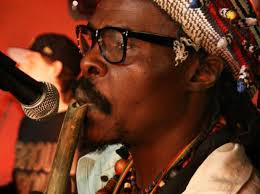Culture for Economic Emergence
By Christopher JATOR, Cameroon Tribune, 06-10-2014
 Academics and professionals are setting together the perspectives of a judicious use of this commodity.
Academics and professionals are setting together the perspectives of a judicious use of this commodity.
A
four-day international colloquium based on the theme “African culture as
factor of development: viable cultural industries for sustainable
development” opened at the University of Douala campus on October 1.
Dubbed
“Les Deuxièmes Journées des Sciences du Langage,”
the colloquium
attended by 90 participants was a tribute to late Prof. Maurice
Tadadjeu, described by the Dean of the Faculty of Letters and Social
Sciences of the University of Douala, Prof. Samuel Efoua Mbozo’o, as a
learned mind of African Culture and Civilisation. With the initiative of
the scholarly association “Cercle des Chercheurs en Lettres et Sciences
Sociales”, CEDIMA 5, and the Department of Linguistics and
Negro-African Literature of the Faculty of Letters and Social Sciences,
FLSS, of the University of Douala, in partnership with the Institute of
Fine Arts, IBA, Nkongsamba, the colloquium focuses on the importance of
including the culture industry for economic emergence of the continent.
The Asian experience with China as spearhead, according to Prof. Jules
Assoumou, President of CEDIMA 5, is a reminder that culture is not only
an immeasurable wealth, but the basis of all genuine growth:
well-operated, well processed and well sold, it feeds the tourism
industry, the social economy, crafts…
In his
welcome address, FLSS Dean Prof. Samuel Efoua Mbozo’o qualified culture
as a vector of sustainable development, essential and timely in the
country’s specific context where every citizen is called upon to
contribute for an emergent Cameroon by 2035. To him, this year’s theme
reminds of the role culture plays in the moral and psychological
identification, cohesion, and upbringing of a people; for as the saying
goes: a people without a culture is a people without roots and we add
that, a people without roots is a people with neither a present nor
future.
Commentaires
Enregistrer un commentaire